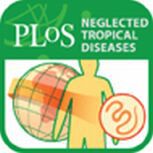Glycans from Fasciola hepatica Modulate the Host Immune Response and TLR-Induced Maturation of Dendritic Cells
Dublin Core
Título
Glycans from Fasciola hepatica Modulate the Host Immune Response and TLR-Induced Maturation of Dendritic Cells
Tema
PARASITOLOGIA
HELMINTICOS
FASCIOLA HEPATICA
BIBLIOGRAFIA NACIONAL QUIMICA
2015
Abstract
Helminths express various carbohydrate-containing glycoconjugates on their surface, and they release glycan-rich excretion/secretion products that can be very important in their life cycles, infection and pathology. Recent evidence suggests that parasite glycoconjugates could play a role in the evasion of the immune response, leading to a modified Th2-polarized immune response that favors parasite survival in the host. Nevertheless, there is limited information about the nature or function of glycans produced by the trematode Fasciola hepatica, the causative agent of fasciolosis. In this paper, we investigate whether glycosylated molecules from F. hepatica participate in the modulation of host immunity. We also focus on dendritic cells, since they are an important target of immune-modulation by helminths, affecting their activity or function. Our results indicate that glycans from F. hepatica promote the production of IL-4 and IL-10, suppressing IFNγ production. During infection, this parasite is able to induce a semi-mature phenotype of DCs expressing low levels of MHCII and secrete IL-10. Furthermore, we show that parasite glycoconjugates mediate the modulation of LPS-induced maturation of DCs since their oxidation restores the capacity of LPS-treated DCs to secrete high levels of the pro-inflammatory cytokines IL-6 and IL-12/23p40 and low levels of the anti-inflammatory cytokine IL-10. Inhibition assays using carbohydrates suggest that the immune-modulation is mediated, at least in part, by the recognition of a mannose specific-CLR that signals by recruiting the phosphatase Php2. The results presented here contribute to the understanding of the role of parasite glycosylated molecules in the modulation of the host immunity and might be useful in the design of vaccines against fasciolosis.
Autor
Rodríguez, Ernesto
Noya, Verónica
Cervi, Laura
Chiribao, María Laura
Brossard, Natalie
Chiale, Carolina
Carmona, Carlos
Freire, Teresa
Fuente
Plos Neglected Tropical Diseases v. 9, no. 12, 2015. -- e.0004234
Editor
PLOS Neglected Tropical Diseases publication
Fecha
2015
Derechos
Información sobre Derechos de Autor
(Por favor lea este aviso antes de abrir los documentos u objetos)
La legislación uruguaya protege el derecho de autor sobre toda creación literaria, científica o artística, tanto en lo que tiene que ver con sus derechos morales, como en lo referente a los derechos patrimoniales con sujeción a lo establecido por el derecho común y las siguientes leyes
(LEY 9.739 DE 17 DE DICIEMBRE DE 1937 SOBRE PROPIEDAD LITERARIA Y ARTISTICA CON LAS MODIFICACIONES INTRODUCIDAS POR LA LEY DE DERECHO DE AUTOR Y DERECHOS CONEXOS No. 17.616 DE 10 DE ENERO DE 2003, LEY 17.805 DE 26 DE AGOSTO DE 2004, LEY 18.046 DE 24 DE OCTUBRE DE 2006 LEY 18.046 DE 24 DE OCTUBRE DE 2006)
ADVERTENCIA - La consulta de este documento queda condicionada a la aceptación de las siguientes condiciones de uso: Este documento es únicamente para usos privados enmarcados en actividades de investigación y docencia. No se autoriza su reproducción con fines de lucro. Esta reserva de derechos afecta tanto los datos del documento como a sus contenidos. En la utilización o cita de partes debe indicarse el nombre de la persona autora.
(Por favor lea este aviso antes de abrir los documentos u objetos)
La legislación uruguaya protege el derecho de autor sobre toda creación literaria, científica o artística, tanto en lo que tiene que ver con sus derechos morales, como en lo referente a los derechos patrimoniales con sujeción a lo establecido por el derecho común y las siguientes leyes
(LEY 9.739 DE 17 DE DICIEMBRE DE 1937 SOBRE PROPIEDAD LITERARIA Y ARTISTICA CON LAS MODIFICACIONES INTRODUCIDAS POR LA LEY DE DERECHO DE AUTOR Y DERECHOS CONEXOS No. 17.616 DE 10 DE ENERO DE 2003, LEY 17.805 DE 26 DE AGOSTO DE 2004, LEY 18.046 DE 24 DE OCTUBRE DE 2006 LEY 18.046 DE 24 DE OCTUBRE DE 2006)
ADVERTENCIA - La consulta de este documento queda condicionada a la aceptación de las siguientes condiciones de uso: Este documento es únicamente para usos privados enmarcados en actividades de investigación y docencia. No se autoriza su reproducción con fines de lucro. Esta reserva de derechos afecta tanto los datos del documento como a sus contenidos. En la utilización o cita de partes debe indicarse el nombre de la persona autora.
Formato
PDF
Idioma
Inglés
Tipo
Artículo
Identificador
http://dx.doi.org/10.1371/journal.pntd.0004234
Document Item Type Metadata
Original Format
PDF
- Fecha de agregación
- February 22, 2016
- Colección
- Bibliografía Nacional Química
- Tipo de Elemento
- Document
- Etiquetas
- Fasciola hepatica, Helmínticos, Parasitología
- Citación
- Rodríguez, Ernesto, “Glycans from Fasciola hepatica Modulate the Host Immune Response and TLR-Induced Maturation of Dendritic Cells,” RIQUIM - Repositorio Institucional de la Facultad de Química - UdelaR, accessed July 26, 2024, https://riquim.fq.edu.uy/items/show/3679.
- Archivos

